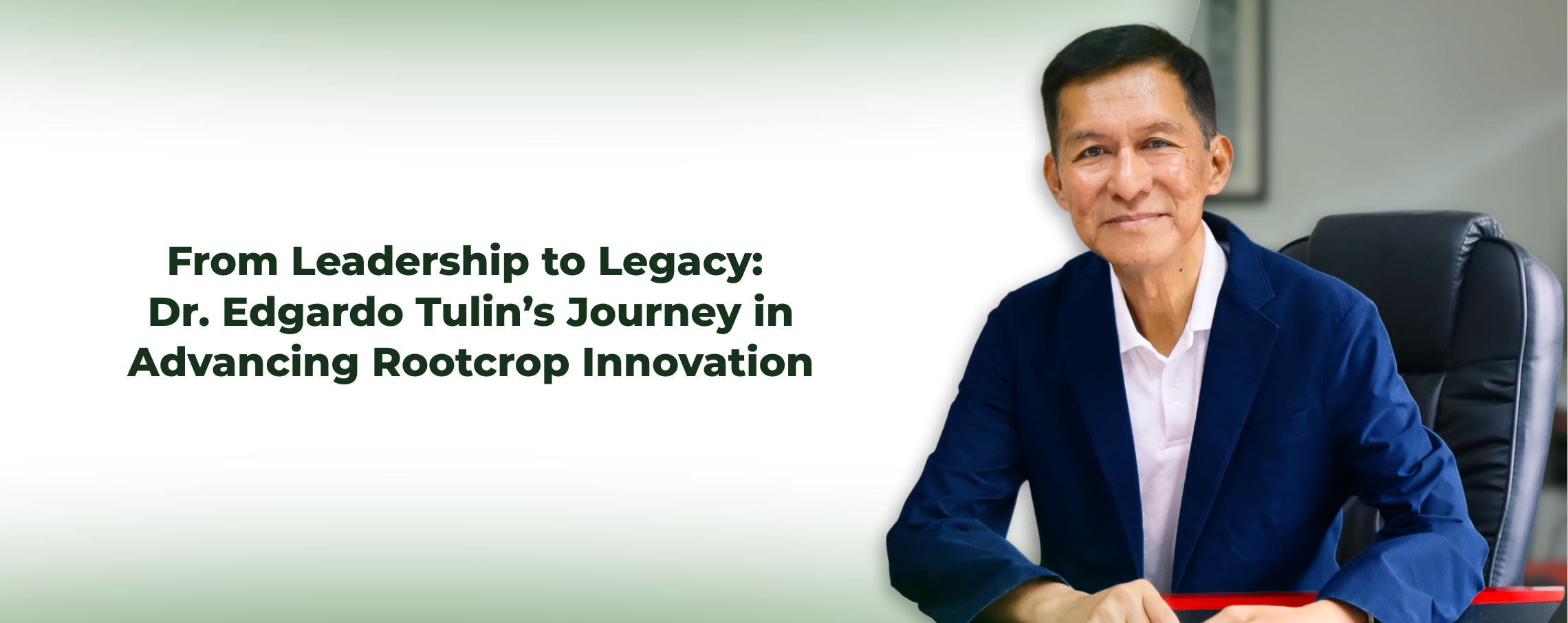Dr. Edgardo Tulin, fondly known as Sir Edu, is a distinguished, multi-awarded scientist and one of the most respected professors at Visayas State University (VSU). Serving as the university’s 6th President from 2015 to 2024, he is remembered not only as a leader but also as the institution’s “Father of Modern Biotechnology.” His visionary stewardship and research breakthroughs helped catapult VSU into becoming one of the country’s most prestigious universities.
Early Life and Academic Pursuits
Born in Albuera, Leyte, Sir Edu spent his early years in local public schools before enrolling at the then Visayas State College of Agriculture (ViSCA). He pursued a Bachelor of Science in Agriculture, majoring in Agricultural Chemistry, completing the degree with flying colors in just four years.
His passion for research took root when he joined PhilRootcrops immediately after graduation in 1981.
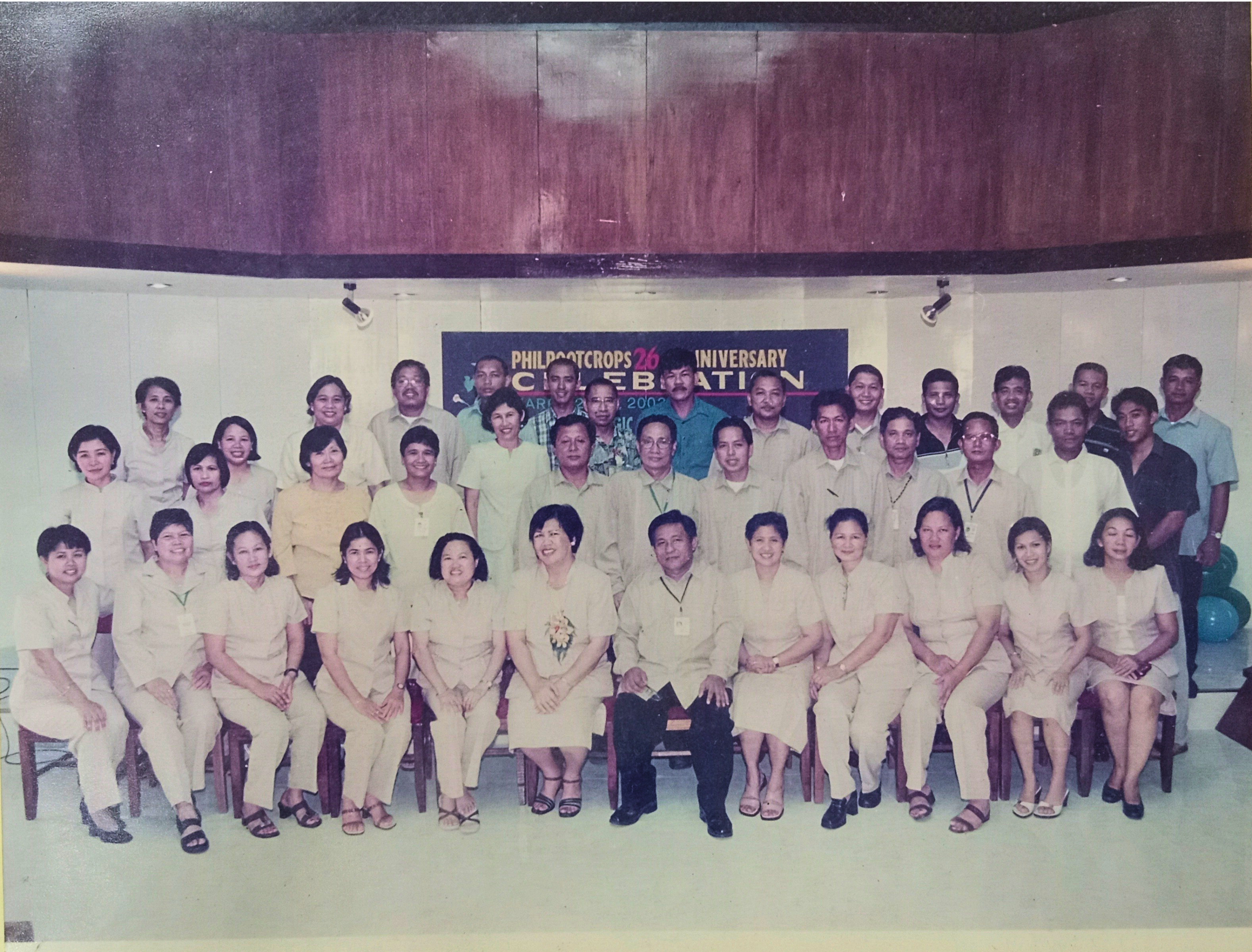
“During my time at PhilRootcrops, I was first a Science Research Assistant under Dr. Emma Data, then head of the Postharvest Division. I worked on projects such as exploring rootcrops as alternate sources of energy.”
PhilRootcrops’ strong collaborative network exposed him to emerging breeding techniques and innovations, paving the way for postgraduate opportunities abroad.
“Starting my journey in 1981 as a Research Assistant, we had a notable collaboration with the Tropical Products Institute of England. They sent a consultant, Mr. John Burden, who was instrumental in recommending me for my master’s degree in London.”
After completing his master’s degree in London, he pursued a doctorate in Japan at Nagoya University. He credits the scientists and consultants he met along the way as mentors who sharpened his expertise and inspired him to return home to advance Philippine agriculture.
A Lifelong Bond with PhilRootcrops
Throughout his career, Sir Edu remained devoted to rootcrop research. His directorship of PhilRootcrops began in 2022, concurrent with his role as VSU President. Despite the heavy demands of leadership, he never detached from his lifelong passion for science.
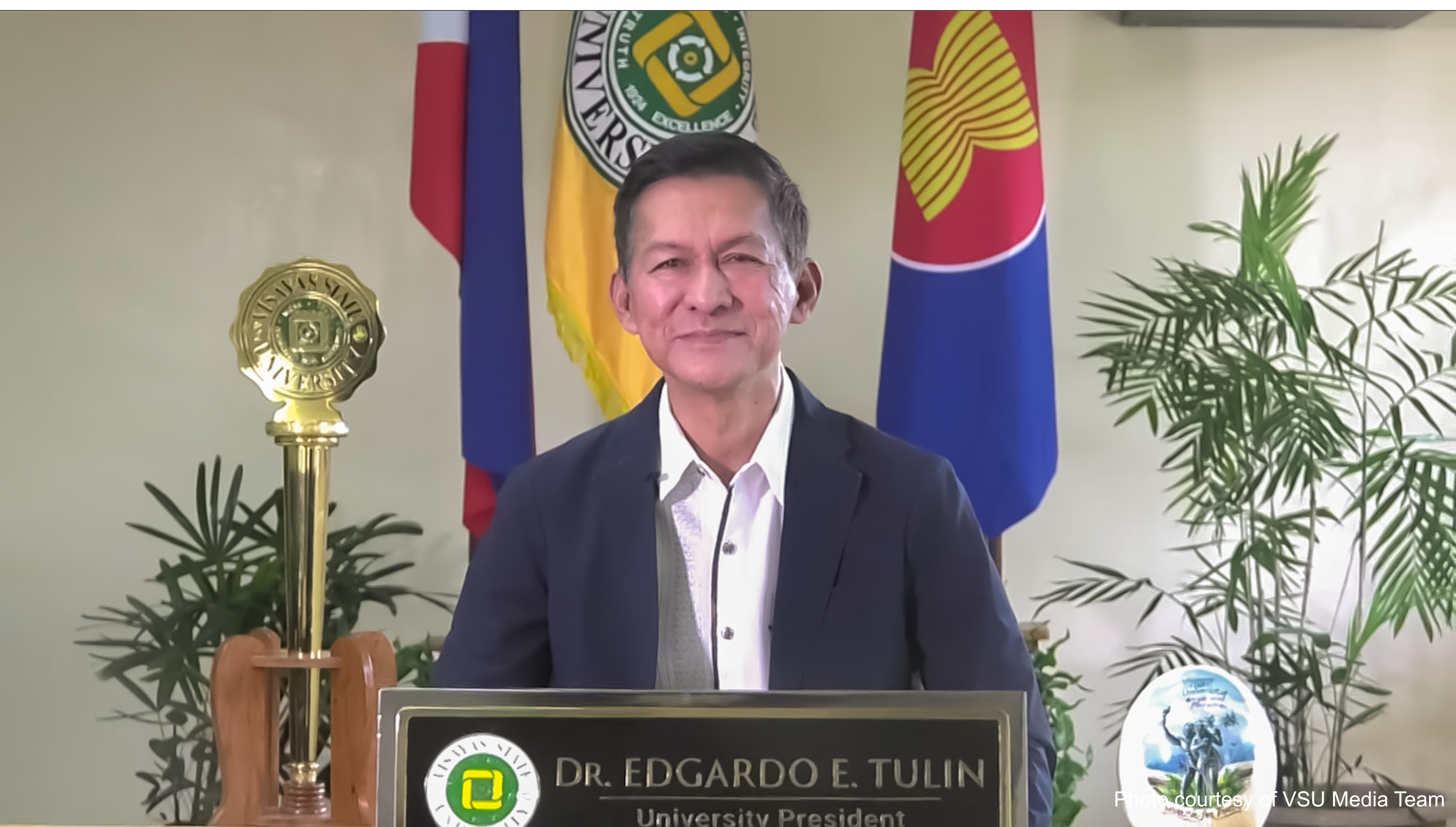
“When I became Director of PhilRootcrops, it was for less than two years since I was also serving as University President. Being a true-blooded PhilRootcrops employee, I made sure the center’s mandate was recognized as part of the university’s mission.”
His research contributions include advances in molecular diagnostics, natural product chemistry, and bioinoculants. His protein profiling studies revealed how rootcrops respond at the molecular level to diseases and stress, identifying biomarkers vital for faster disease detection and crop improvement. His research on PRP-1 proteins from purple yam also highlighted their contributions to human health and potential roles in metabolic regulation.
These studies underscore not only the resilience of rootcrops as staples but also their potential as functional foods with health benefits.
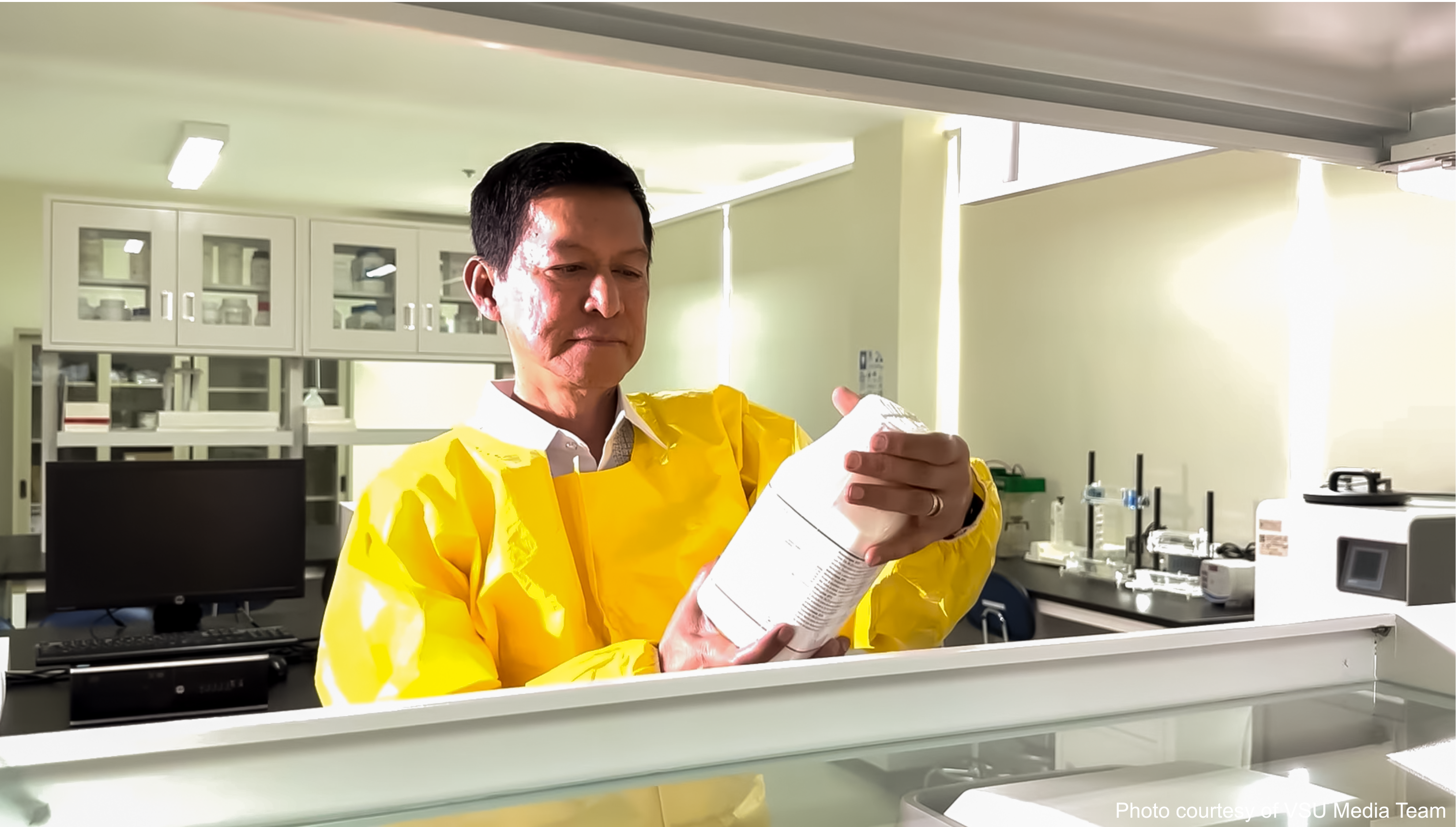
“These accomplishments were possible because of the production division, our plant breeders and agronomists, and the engineering division, which developed processing tools. Pest management, cultural management—all these sections worked together. My success is something I share with the people I worked with.”
Struggles Beneath the Breakthroughs
Like any towering crop enduring storms, Sir Edu’s journey was not without challenges. One of his biggest struggles as director was faculty recruitment and development, as many seasoned researchers retired, leaving a gap in mentorship and expertise.
Despite this, he remained optimistic about the younger faculty and consistently encouraged them to pursue higher studies, echoing his own academic journey.
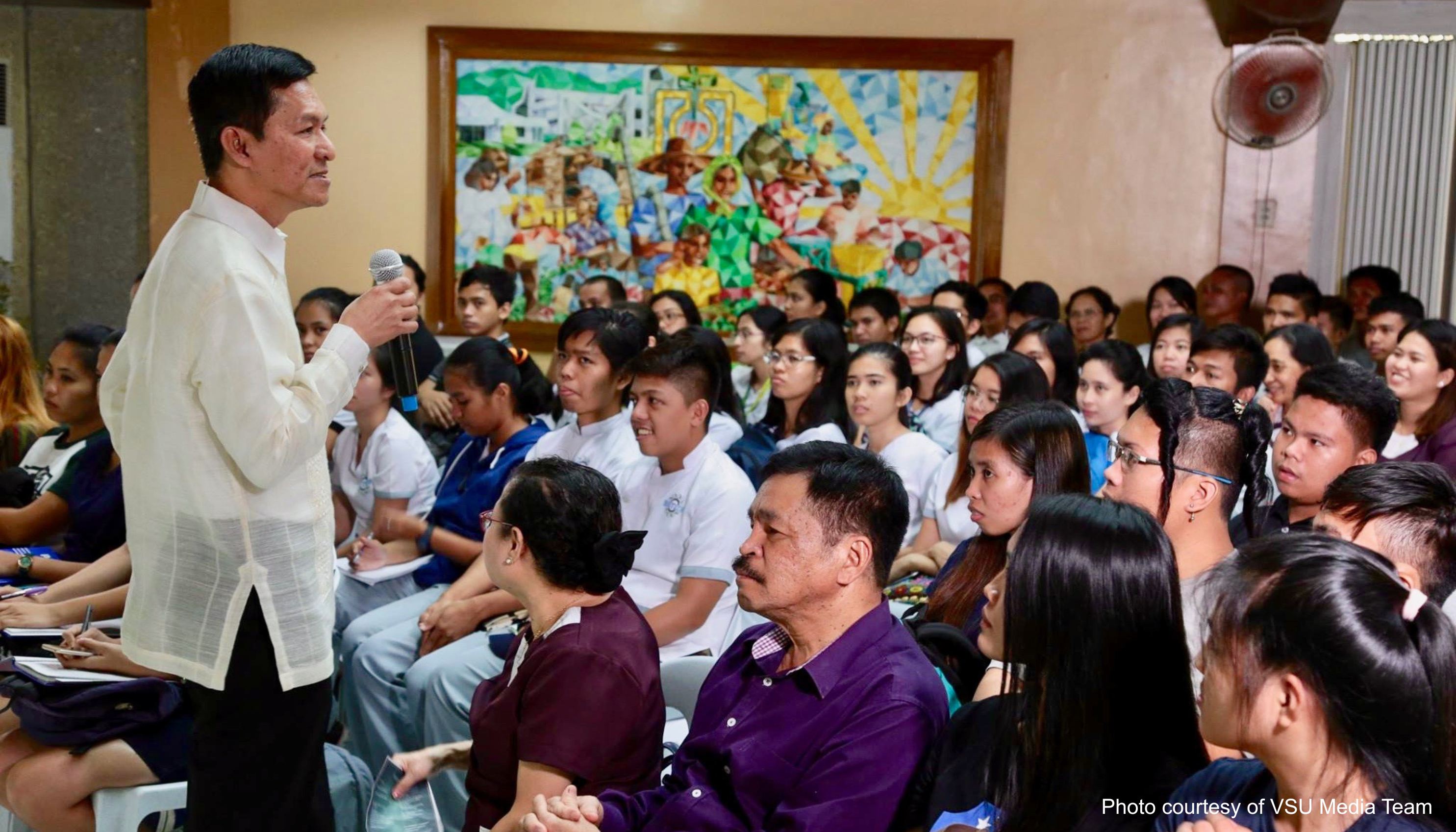
“The transcendence of knowledge is what we’re working on at the interface of instruction, research, and extension. Research leads you to instruction, then extension. We extend projects and technologies, along with our expertise, because our work must reach the community.”
Harvests of Outstanding Leadership
Beyond rootcrops, Sir Edu also championed research and development on other commodities where VSU is a leading institution. These initiatives greatly benefited farmers in Eastern Visayas through technology transfer, capacity-building, and livelihood opportunities. His vision even extended to Mindanao, particularly Maguindanao and Basilan, where projects strengthened crop value chains to create more income opportunities for local communities.
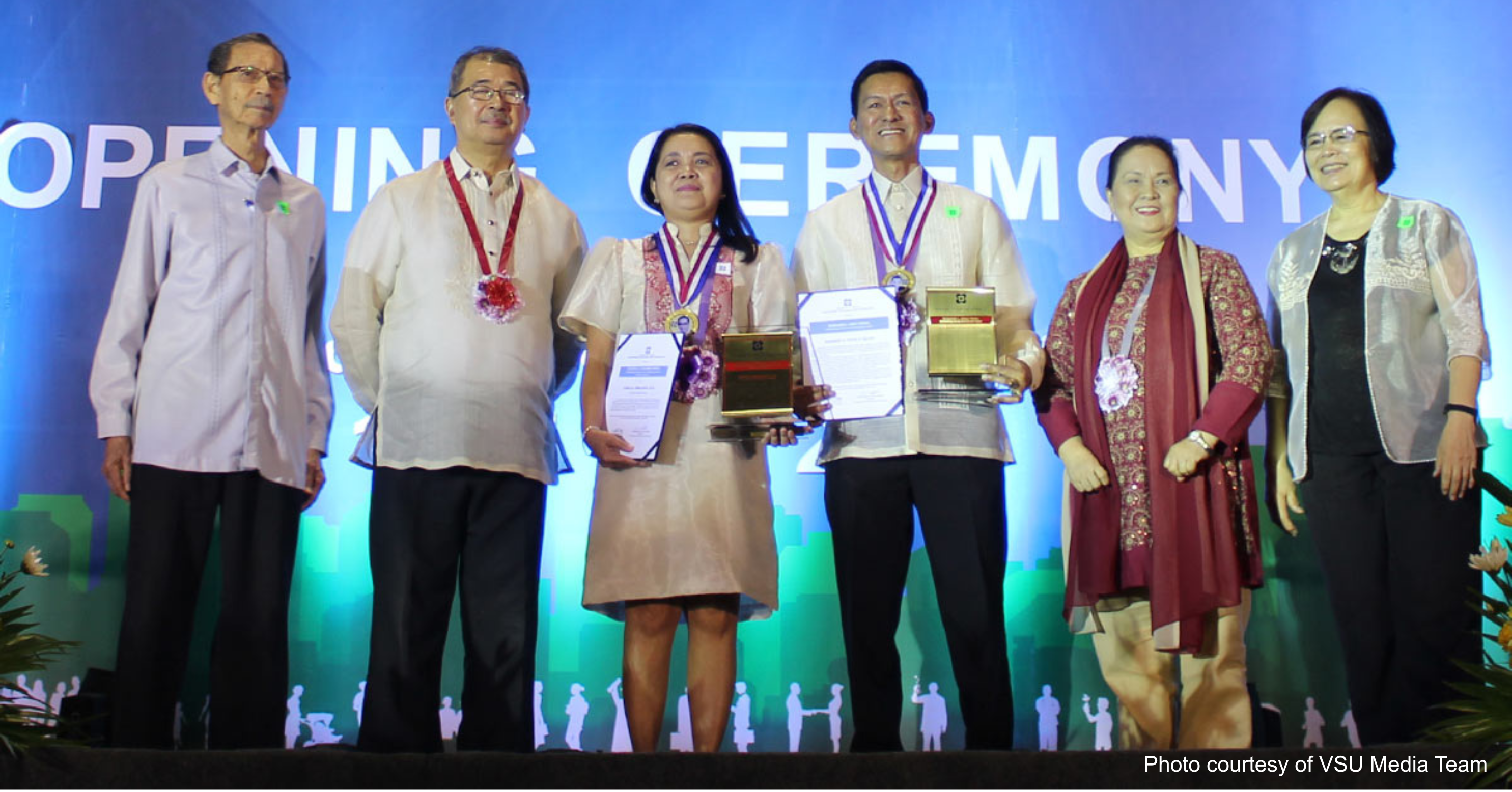
His exemplary work earned him numerous accolades, including:
-
Eduardo Quisumbing Medal for Outstanding Agriculture (2008)
-
Philippine Federation of Chemical Societies Award for Chemical Research (2011)
-
National Semifinalist, Dangal ng Bayan Award (2014)
-
Presidential Lingkod Bayan Award (2014)
-
Dioscoro L. Umali Award for Outstanding Research Administrator, National Academy of Science and Technology (2018)
Building a Lasting Legacy
As he steps down from his post, Sir Edu expresses heartfelt gratitude to the people and the institution that shaped him. He considers PhilRootcrops the cornerstone of his professional and personal journey.
“I am very proud to be in PhilRootcrops because that is where I started. I may have retired, but not with a sad heart, as I am never truly away. PhilRootcrops will always be my genesis. I would not be the Dr. Edgardo E. Tulin you see today without PhilRootcrops. It is also where I met my wife, Dr. Annabelle B. Tulin.”
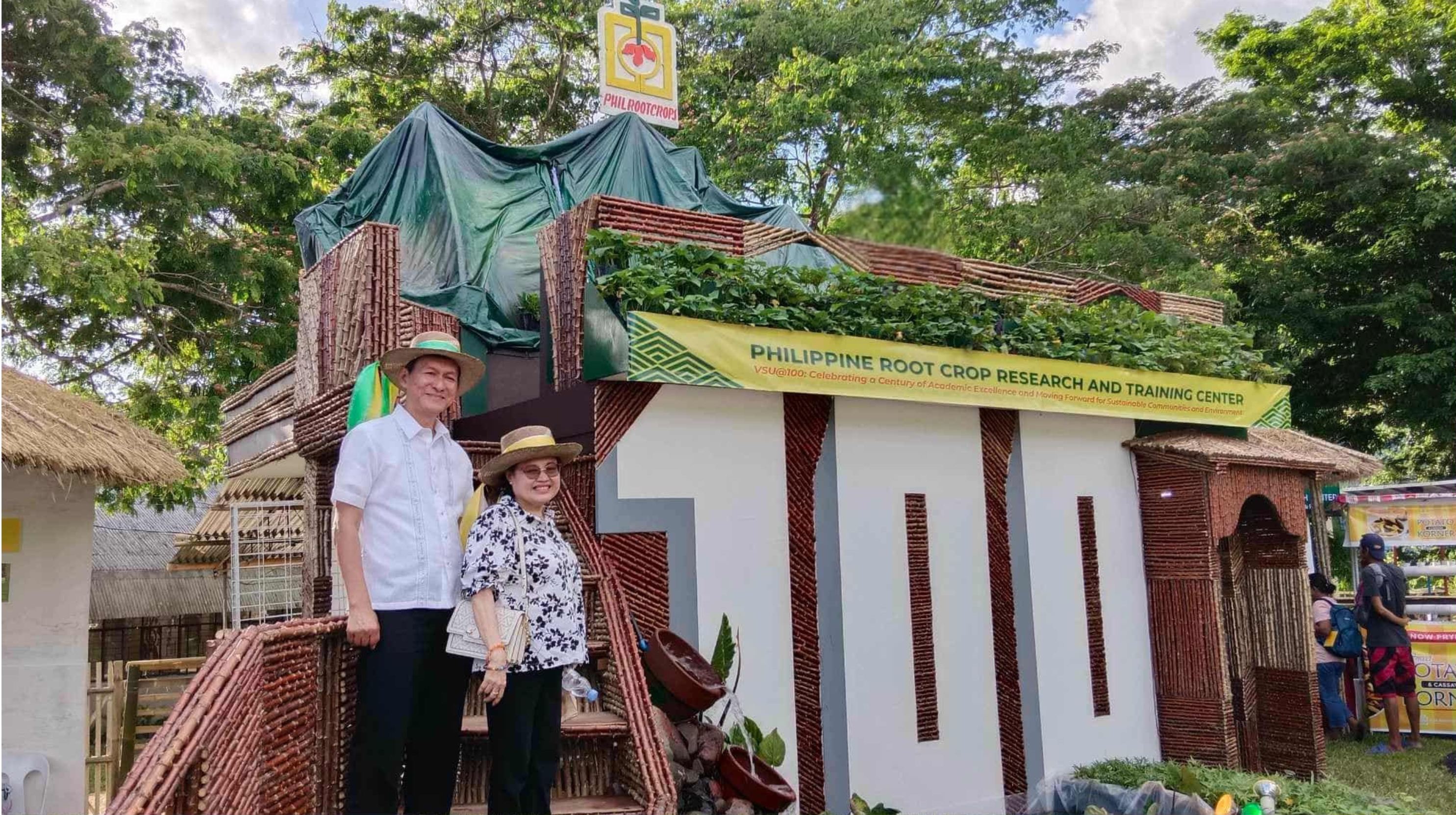
Looking forward, he envisions PhilRootcrops as a hub of innovation, embracing tools such as artificial intelligence (AI) and robotics to ensure that the next generation of scientists continue to push the boundaries of agricultural research.
A Call to the Future Stewards of Agriculture
Finally, Sir Edu imparts a message to the younger generation, reminding them of agriculture’s vital role:
“The field of agriculture is very important. It is the source of everything—food security, nutrition, our health and wellness. If we don’t have people who care for and nurture agriculture, then we are a lost generation. We would not be alive.”
These words capture not only his mission but also PhilRootcrops’ mandate: to bridge science and innovation with service that empowers farmers, equips scientists, and ensures food security and sustainability for generations to come.
As he passes the torch, Dr. Edgardo E. Tulin leaves not with an ending but with a vision—a path that cultivates science, resilience, and service to humanity.

